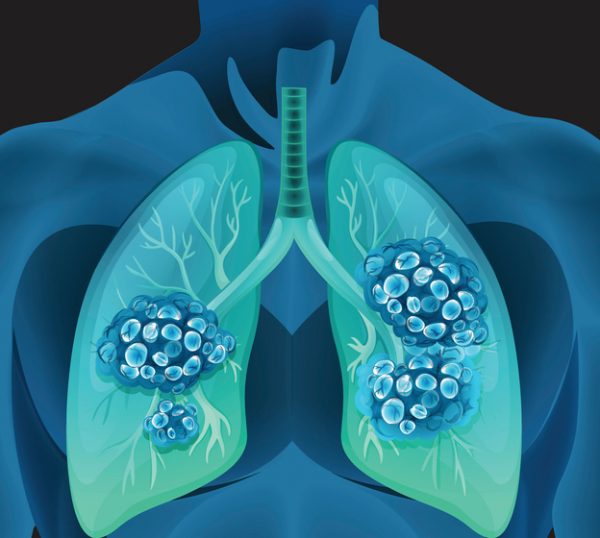
AstraZeneca cancer drug Imjudo is now approved by the FDA for treating advanced non-small cell lung cancer (NSCLC), giving the pharmaceutical giant another product to compete in the crowded market of lung cancer therapies.
The approval announced late last week specifically covers use of the drug, Imjudo, in combination with another approved AstraZeneca immunotherapy, plus chemotherapy, for treating adults whose NSCLC has metastasized. NSCLC is the most common type of lung cancer.

NEMT Partner Guide: Why Payers and Providers Should Choose MediDrive’s TMS
Alan Murray on improving access for medical transportation.
Imjudo is part of a class of drugs called checkpoint inhibitors. These antibody drugs block proteins that tumors use to evade detection by the immune system. Imjudo targets CTLA-4, a checkpoint protein found on the surface of immune cells. The drug is dosed in combination with Imfinzi, an AstraZeneca antibody that blocks a different checkpoint protein on tumors called PD-L1.
The FDA decision for Imjudo is based on the results of an open-label Phase 3 test that enrolled more than 1,000 patients with metastatic NSCLC. The drug was tested in a dosing schedule that included treatment with Imfinzi and chemotherapy. According to trial results, five cycles of Imjudo added to Imfinzi, plus four cycles of chemotherapy, reduced the risk of death by 23% compared to various ranges of chemotherapy treatments. After two years of treatment, an estimated 33% of patients who received Imjudo were alive compared to 22% of those in the chemotherapy group. AstraZeneca said the treatment combination also reduced the risk of disease progression or death by 28% compared to chemotherapy alone.
Melissa Johnson, director of lung cancer research at the Sarah Cannon Research Institute at Tennessee Oncology in Nashville, Tennessee, and a lead investigator in Imjudo’s Phase 3 study, said the drug combination gives patients a way to benefit from two approaches to checkpoint inhibition.
“Metastatic non-small cell lung cancer remains a significant treatment challenge because many patients’ tumors do not respond well to standard therapies, including checkpoint inhibitors,” Johnson said in a prepared statement. “The approval of this dual immunotherapy regimen with chemotherapy introduces a new, generally well-tolerated treatment option for patients with this devastating disease and gives them the chance to benefit from the long-term survival advantage seen with CTLA-4 inhibition.”
Updated study results up were presented in September during the European Society of Medical Oncology conference. At about four years of follow-up, overall survival in the Imjudo group was improved by 25% compared to treatment with chemotherapy alone. An estimated 25% of patients who received the drug combination were alive after three years compared to 13.6% of those who received chemotherapy alone. Those updated results were also published in the Journal of Clinical Oncology.
The most common side effects reported in clinical trials included nausea, fatigue, decreased appetite, muscle pain, rash, and diarrhea. AstraZeneca said the safety of Imjudo and Imfinzi was consistent with the safety profiles of each medicine, and no new safety signals were reported.
Applications for Imjudo in NSCLC are currently under regulatory review Europe, Japan, and several other countries. The immunotherapy won its first-ever approval in late October, a decision that authorized the drug as a treatment for hepatocellular carcinoma, the most common type of liver cancer. Similar to the NSCLC approval, the liver cancer decision covers use of the drug in a novel dosing schedule with Imfinzi. AstraZeneca has been testing the Imjudo and Imfinzi combination in other cancers including locoregional hepatocellular carcinoma, small-cell lung cancer, and bladder cancer.
The latest Imjudo approval came days after another checkpoint protein-blocking immunotherapy won a lung cancer nod. The FDA approved Regeneron Pharmaceuticals’ Libtayo as a first-line treatment for advanced NSCLC. The drug was approved last year as a monotherapy to treat NSCLC in which tumors express large amounts of PD-L1. On Nov. 8, the FDA expanded the NSCLC approval to include use of Libtayo in combination with chemotherapy, which broadens the range of patients that can be treated by the drug.
Image: blueringmedia Getty Images








